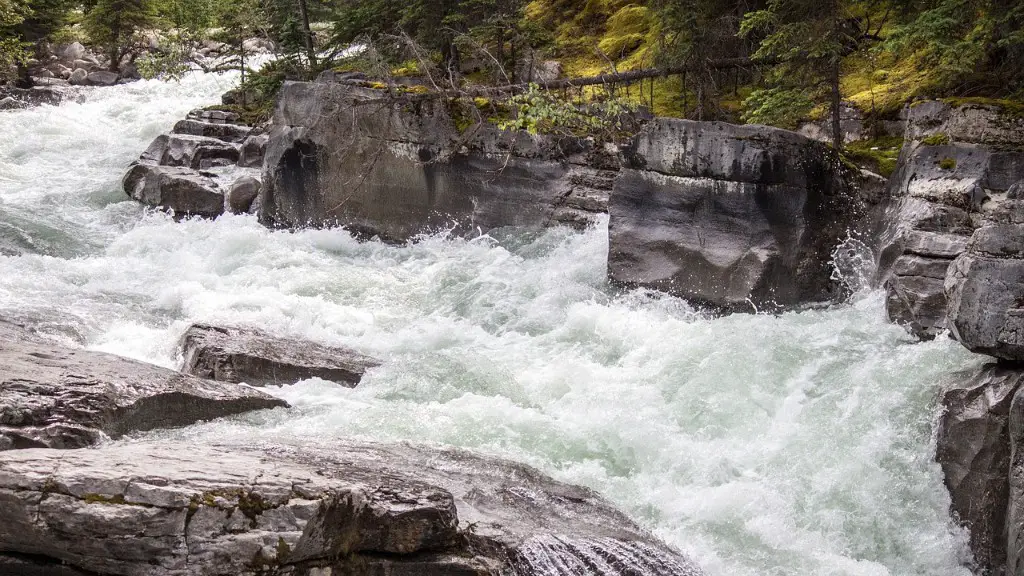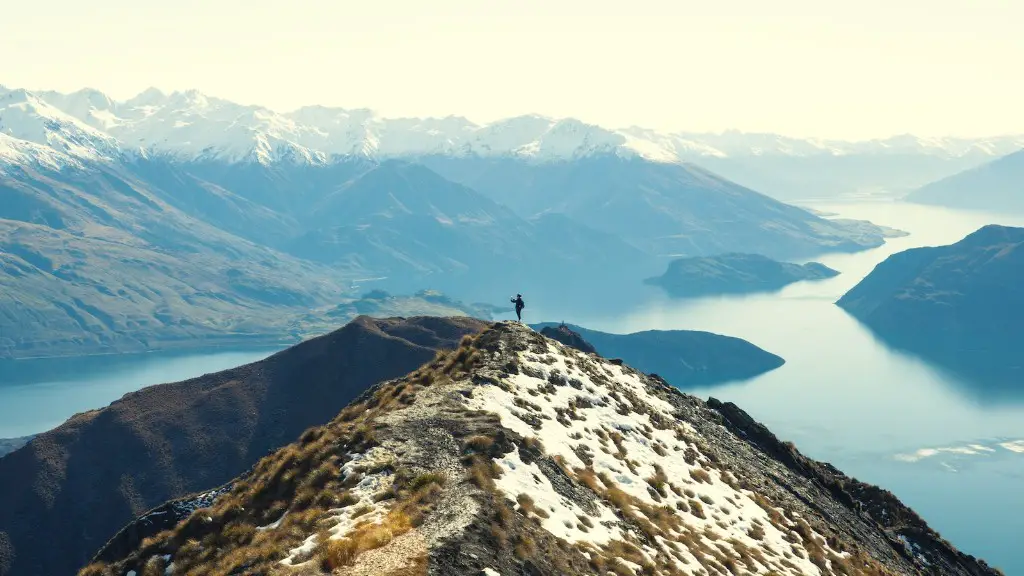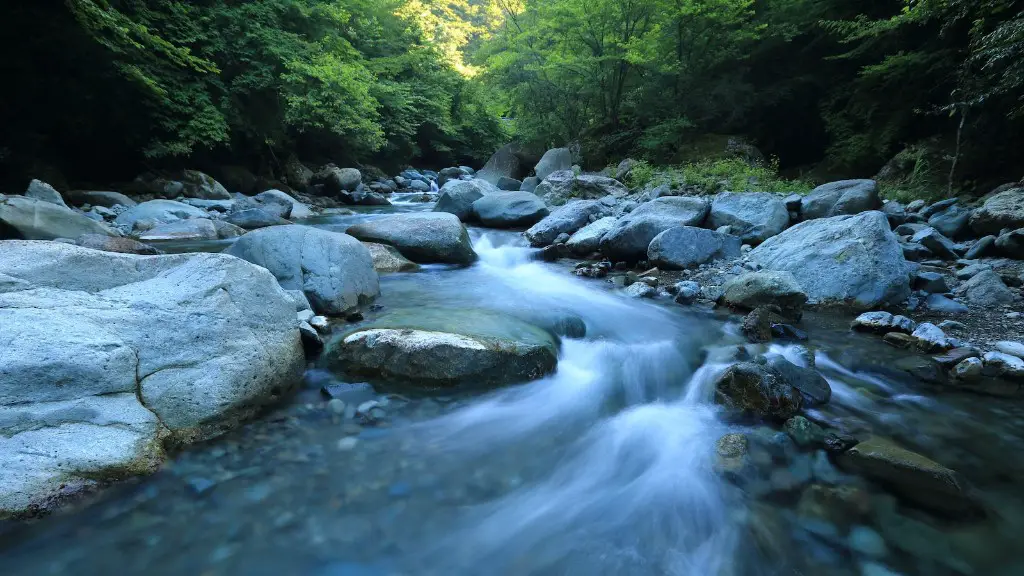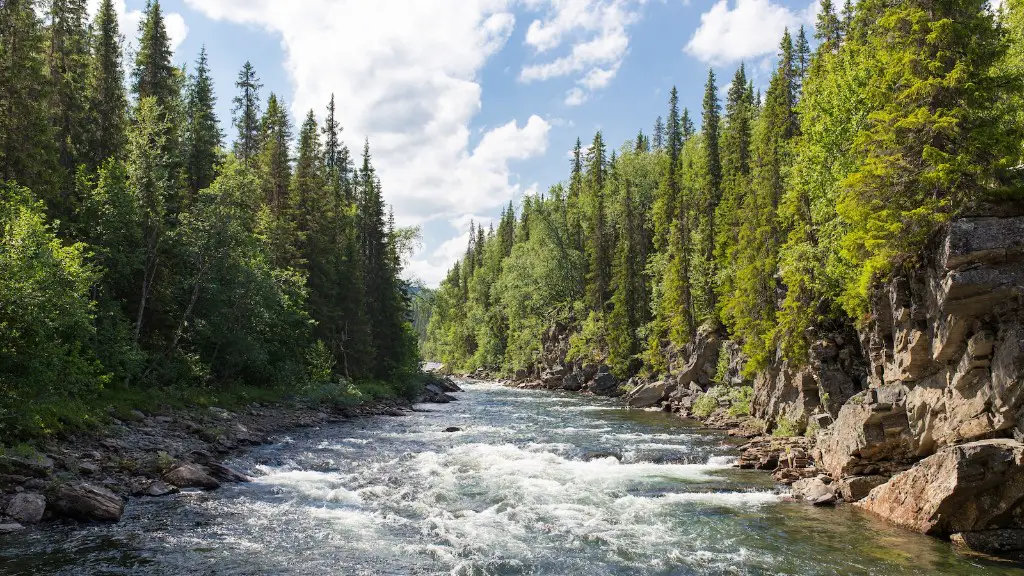The Mississippi River is the second longest river in North America, and one of the principal rivers of the United States. It has long been a topic of conversation both in the US and abroad. One common query is whether the Mississippi is the world’s widest river.
In order to answer this question, the dimensions of the Mississippi River must be compared to those of other wide rivers around the world. According to experts, the widest river in the world is the Amazon in South America, which can reach a maximum width of 11 kilometers (7 miles) during the rainy season. By comparison, the widest stretch of the Mississippi River is the area around Vicksburg, Mississippi, where it spans approximately 6 kilometers (3.7 miles). In other words, while the Mississippi is wide enough to offer stunning views of its banks and unspoiled wilderness, it falls short of the Amazon in terms of width.
The Mississippi River is still an impressive example of nature’s intricate networks and geological forces. It stretches from northern Minnesota to the Gulf of Mexico – an incredible 2,340 miles in length. Moreover, its watershed stretches from the Appalachian Mountains all the way to the Rocky Mountains. The scale of this river is simply breathtaking. It is dotted with grand bluffs, forested swamps, and lush wetland fields, creating a unique ecosystem for many species of plants and animals.
The Mississippi River also has strong ties with the cultural and economic history of the United States. It is an important artery for trade and a renowned location for fishing. It is also rich in stunning natural beauty, which has inspired artists and photographers for years.
It is clear, then, that while the Mississippi River may not be the world’s widest river, it is certainly impressive in its own right. It has been, and is still, an integral part of the history and identity of the United States, and is an important habitat for many plant and animal species.
Mississippi River Ecosystem
The Mississippi River and its ecosystem are one of many reasons why this area is so biologically rich. The river brings with it valuable nutrients, sediment, and oxygen that are essential for the health of the habitat. Furthermore, there are various terrestrial, wetland, and aquatic plant species that are only found in this area. The Mississippi River is home to hundreds of species of fish, mammals, such as beavers and otters, birds, reptiles and amphibians, along with thousands of aquatic invertebrates, like mussels, crayfish, and snails. This makes it one of the prime spots for research and recreational activities.
The diverse environment around the Mississippi River also offers refuge to some threatened species, such as the pallid sturgeon and the whooping crane. It is an integral part of the larger ecosystem, connecting other waterways and providing shelter to wildlife. All of these traits make the Mississippi River complex, vibrant, and full of life.
Cultural Significance
The Mississippi River is also of immense cultural and historical importance. It has connected people who lived near it since the beginning of time, and has played an important role in the US’ economic processes and formation. The waterways of the Mississippi River provide transport for goods, services, and other transportation. In the 19th century, the Mississippi River provided a gateway for the transport of goods to various parts of the world and was a crucial factor in the industrialization of the US.
The river has often been an inspiration for many writers, poets and artists, such as Mark Twain. It has been featured in hundreds of films, television shows and novels. The cultural importance of the river has even been recognized by UNESCO, who named the Middle Mississippi River Valley, a cultural and natural landscape, as a World Heritage Site.
The Mississippi River, therefore, is more than just a wide body of water. Its contributions to the US history, environment, and culture are invaluable, and are part of what makes this area so special.
Environmental Impact
Though the Mississippi River greatly benefits its environment and its inhabitants, the river and its environment have been threatened by human activities in the past. The river and the area surrounding it are exposed to numerous pollutants that come from urban, agricultural, industrial and other runoff sources entering the river through its tributaries. Pollution such as excess fertilizers and agricultural chemicals can result in poor water quality and the death of fish, plants and other organisms that inhabit the river.
Furthermore, unsustainable methods of fishing, such as the use of electric shock fishing, are endangering certain fish species in the river. Human disruption of the natural flow of the river, such as the creation of dams and levees, are also having an impact on the ecosystem.
In recent years, there have been efforts to protect the health of the Mississippi River. The U.S. Environmental Protection Agency has set goals of improving the water quality and reducing the amount of pollutants entering the river. Additionally, many organizations have started initiatives to reduce the impact of fishing on threatened species.
Conclusion
The Mississippi River is an impressive example of nature’s intricacies and beauty, as well as an integral part of the United States’ history, culture, and economy. Despite not being the world’s widest river, it is still one of the most important natural landmarks in the US. The area around the river is home to a diverse range of plants and animals, and its cultural significance is invaluable. Unfortunately, in the past, the river has been exposed to pollutants and unsustainable fishing methods. However, in recent years there have been efforts to protect and maintain the health of the river. It is clear, then, that the Mississippi River is more than just a wide body of water – it is a symbol of the US’ natural beauty and heritage.



